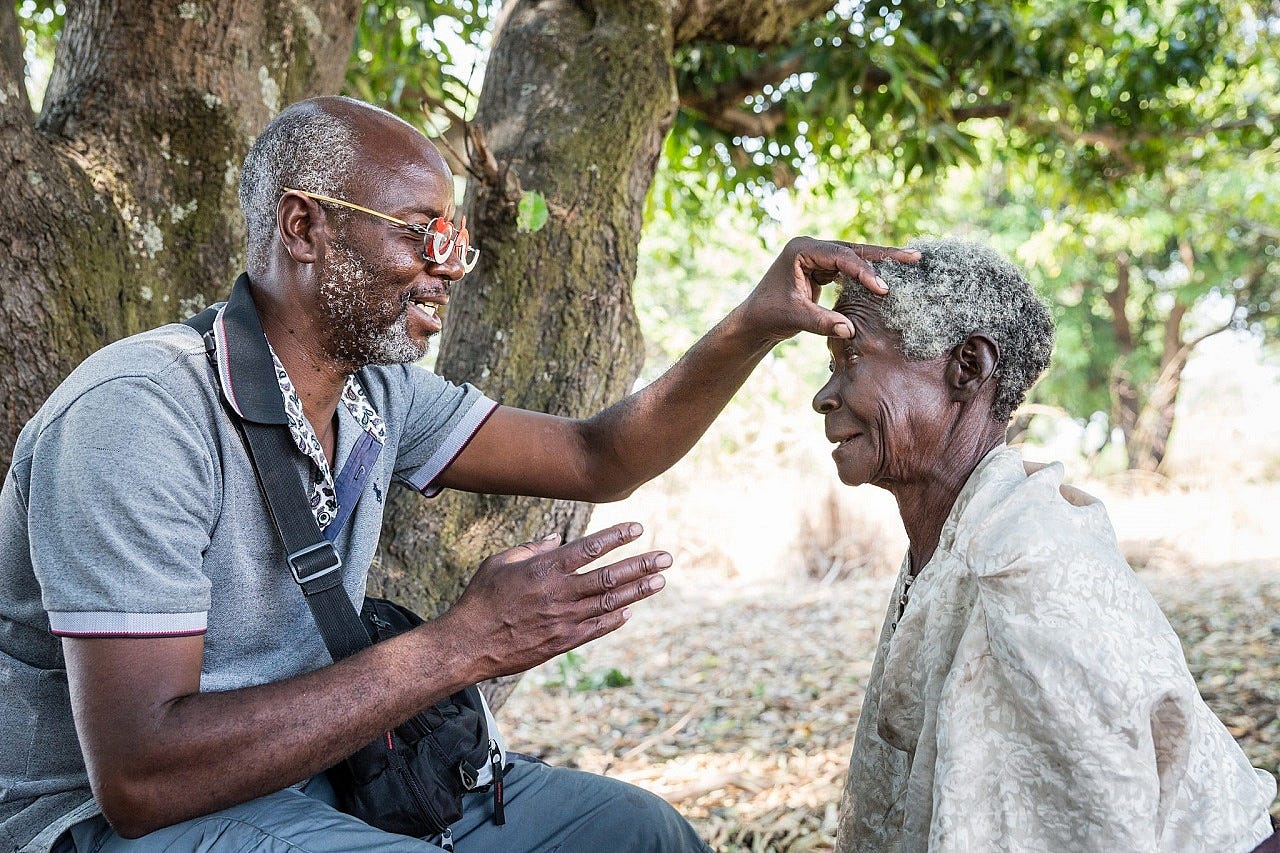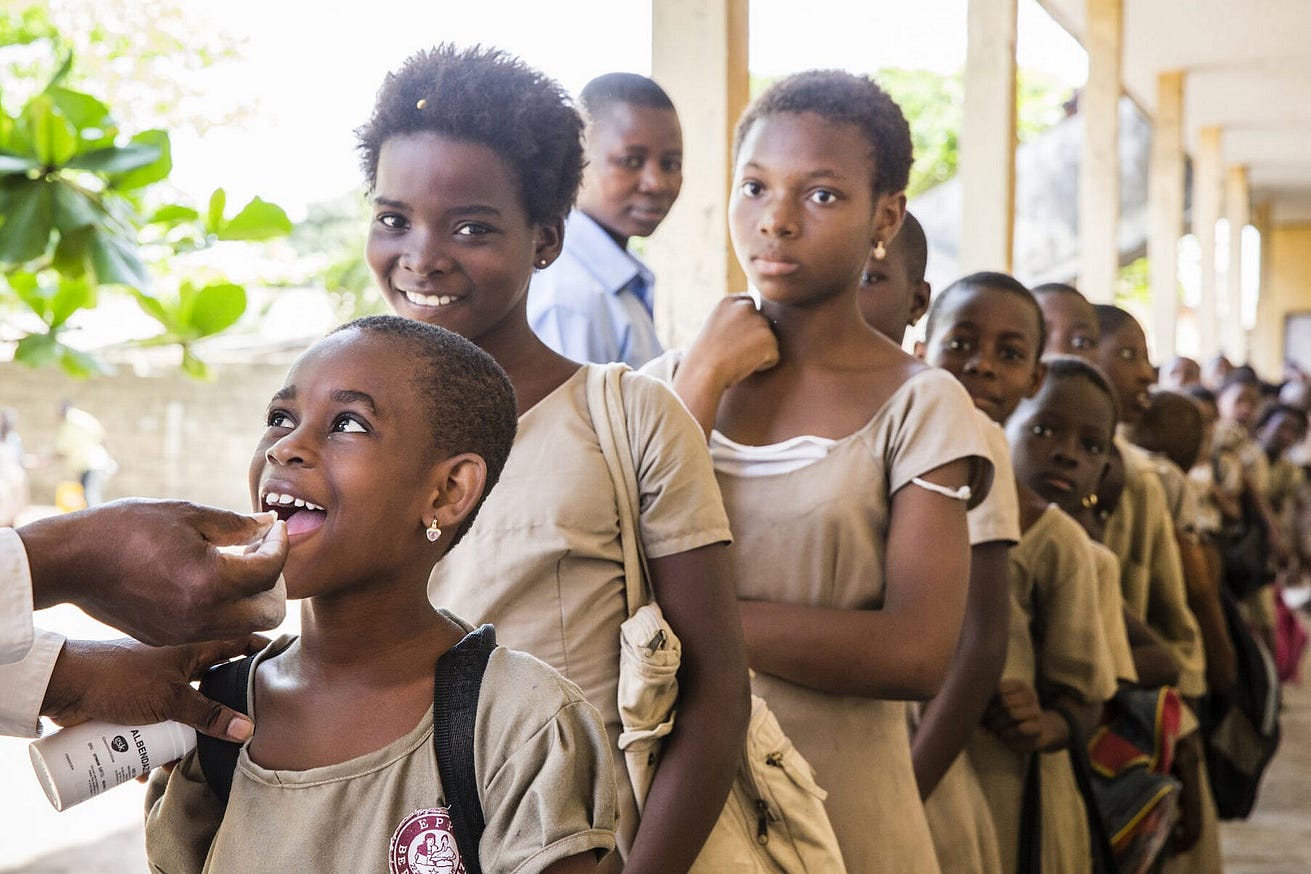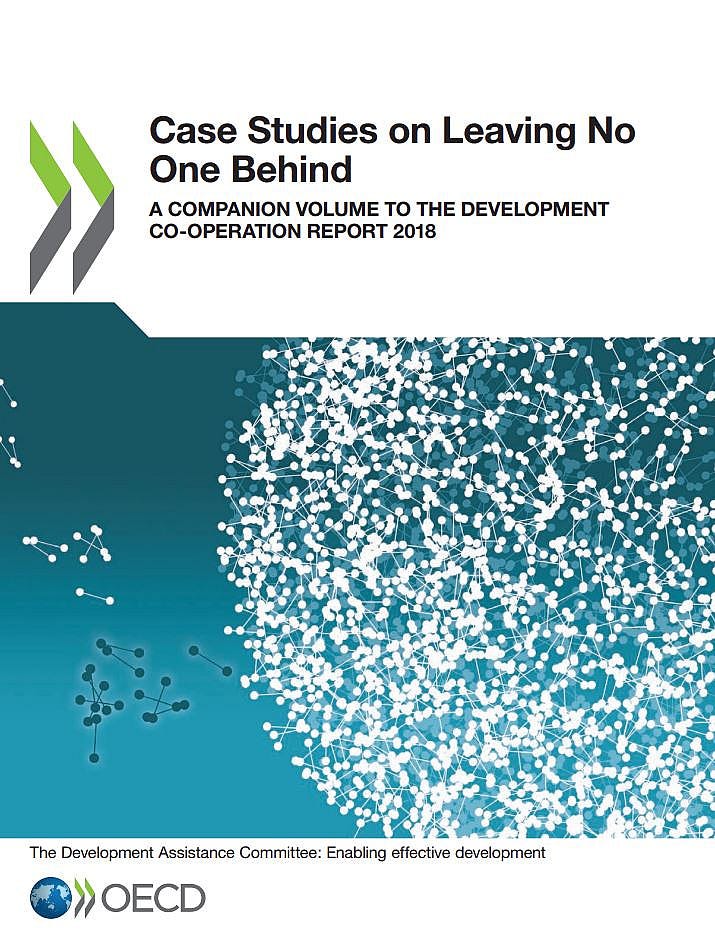This is a republication of the article “Eliminating Existing Epidemics: Investing in neglected tropical diseases strengthens our ability to fight global pandemics”, published by OECD, with the title above.
The Forum Network is a space for experts and thought leaders-from around the world and all parts of society- to discuss and develop solutions now and for the future. Aiming to foster the fruitful exchange of expertise and perspectives across fields to help shape Better Policies for Better Lives, opinions expressed do not necessarily represent the views of the OECD.
institute for health transformation
inhealth
Joaquim Cardoso MSc
January 19, 2023
EXECUTIVE SUMMARY
NTDs are a group of 20 infectious diseases that affect over 1.7 billion people worldwide and include diseases such as trachoma, leprosy, and elephantiasis.
Investing in neglected tropical diseases (NTDs) is crucial for effective pandemic preparedness.
- These diseases debilitate and can be fatal, and affect some of the most vulnerable people in the world.
- Investments in NTDs have been successful, with 47 countries eliminating at least one NTD and 600 million people no longer requiring treatment for them.
- These investments have also helped build robust community health systems that have been effectively leveraged to fight COVID-19 and other health threats.
However, NTD programmes are facing critical funding gaps that threaten progress made to date.
- Investing in fighting epidemics like NTDs leads to stronger health systems and workforces …
- … that are better equipped to detect and respond to both existing epidemics and new global health threats.
COVID-19 has shown us that our investments in fighting NTDs not only improve the quality of life of millions of people, they also can have an incredible impact on boosting global health security.
- That is why the authors are urging governments, academia, civil society and businesses to prioritise existing epidemics like NTDs, and endorse the Kigali Declaration on Neglected Tropical Diseases, a high-level political declaration to mobilise and secure commitments against NTDs.
Global health emergencies like COVID-19 are not inevitable.
- They are a consequence of systemic underinvestment in global health, …
- a lack of surveillance systems capable of detecting disease outbreaks, …
- poor global data sharing protocols, and …
- weak health systems — compounded by inadequate pandemic preparedness.
INFOGRAPHIC
We are pleased to share the high-level outputs from the Kigali Declaration Commitment Tracker. The Kigali Declaration Commitment Tracker is an online system designed to capture, track and monitor commitments to the Kigali Declaration.

DEEP DIVE

Investing in neglected tropical diseases strengthens our ability to fight global pandemics
OECD
It has now been nearly three years since the World Health Organization (WHO) first declared the COVID-19 pandemic.
Since then, the question of how to build better defence systems against infectious diseases has become a priority issue for us all.
But effective pandemic preparedness means more than just anticipating and planning for the next explosive global health threat.
It also means doing a better job of tackling existing ones.
But effective pandemic preparedness means more than just anticipating and planning for the next explosive global health threat. It also means doing a better job of tackling existing ones.

Take neglected tropical diseases (NTDs), for example.
NTDs are a group of 20 infectious diseases and conditions that affect more than 1.7 billion people worldwide, and include trachoma, leprosy, intestinal worms, Guinea worm disease and elephantiasis.
NTDs are a group of 20 infectious diseases and conditions that affect more than 1.7 billion people worldwide, and include trachoma, leprosy, intestinal worms, Guinea worm disease and elephantiasis.
They are devastating existing epidemics that debilitate, disfigure and can be fatal. NTDs affect some of the most vulnerable people in the world.
Investments in NTDs have been a global success story to date, with 47 countries having eliminated at least one NTD and 600 million people no longer requiring treatment for them.
COVID-19 has shown us that our investments in fighting NTDs not only improve the quality of life of millions of people, they also can have an incredible impact on boosting global health security.
Investments against these diseases have helped build robust community health systems that have been effectively leveraged to fight COVID-19, as well as other health threats like Ebola.
Indeed, trusted community health workers and platforms developed over the years to track, prevent, diagnose and treat NTDs were essential to help fight COVID-19.
NTD programmes also train local drug distributors and frontline health workers, bringing healthcare to some of the most remote parts of the world and playing a crucial role during disease outbreaks.
They conduct and report on novel disease surveillance and encourage referrals to local health facilities, ensuring broader and more equitable access to services.
They catalyse lasting transformation in health systems that is critical to maintaining healthy communities and to preventing future pandemics.
Investments against these diseases have helped build robust community health systems that have been effectively leveraged to fight COVID-19, as well as other health threats like Ebola.
… They conduct and report on novel disease surveillance and encourage referrals to local health facilities, ensuring broader and more equitable access to services.
What’s more, investments in NTDs have been a global success story to date, with 47 countries having eliminated at least one NTD and 600 million people no longer requiring treatment for them.
This shows that it is possible to reach some of the world’s poorest and most remote communities through creative, low-cost programmes.

Yet, despite these incredible impacts, NTD programmes are facing critical funding gaps that threaten to derail progress to date.
COVID-19 has had devastating and costly consequences on NTD programmes, including causing severe disruptions and delays to the provision of care.
COVID-19 has had devastating and costly consequences on NTD programmes, including causing severe disruptions and delays to the provision of care.
African communities in particular are facing a heavy burden: the pandemic has had a devastating impact on health services, and cuts to NTD treatments will make them more vulnerable to tropical diseases.
This increases the risk of disease resurgence, undermining efforts to improve global health security.
Investing in fighting epidemics like NTDs leads to stronger health systems and workforces that are better equipped to detect and respond to both existing epidemics and new global health threats.

The case for increased action on existing epidemics is clear.
Global health emergencies like COVID-19 are not inevitable.
They are a consequence of systemic underinvestment in global health, a lack of surveillance systems capable of detecting disease outbreaks, poor global data sharing protocols, and weak health systems compounded by inadequate pandemic preparedness.
Global health emergencies like COVID-19 are not inevitable.
They are a consequence of systemic underinvestment in global health, a lack of surveillance systems capable of detecting disease outbreaks, poor global data sharing protocols, and weak health systems compounded by inadequate pandemic preparedness.

OECD leaders have an opportunity to end this pandemic and prevent the next one-and provide future generations with a strong example of how multilateralism can work. They can lead transformative change rather than merely tinker around the edges.
Investing in fighting epidemics like NTDs leads to stronger health systems and workforces that are better equipped to detect and respond to both existing epidemics and new global health threats.
It is in the interest of all countries to support these efforts.
Only with strong systems throughout the world will we be able to prepare for and effectively tackle future outbreaks of deadly infections.
Decreasing our efforts against these diseases would result in a large-scale resurgence of infections that would be even more costly to address-and with potentially disastrous consequences.
Only with strong systems throughout the world will we be able to prepare for and effectively tackle future outbreaks of deadly infections.
Decreasing our efforts against these diseases would result in a large-scale resurgence of infections that would be even more costly to address-and with potentially disastrous consequences.
That is why we are urging governments, academia, civil society and businesses to prioritise existing epidemics like NTDs, and endorse the Kigali Declaration on Neglected Tropical Diseases, a high-level political declaration to mobilise and secure commitments against NTDs.
Developed with extensive input from stakeholders around the world, the Declaration is mobilising the political will, community engagement, resources and action needed to stop suffering caused by these diseases.
We have seen incredible leadership so far: 67 groups have endorsed the Kigali Declaration to date. We welcome leaders to join them and be 100% committed to ending NTDs.
We can build a safer, healthier future together by investing in fighting existing epidemics today.
We welcome leaders to join them and be 100% committed to ending NTDs.
We can build a safer, healthier future together by investing in fighting existing epidemics today.


Introduction
The Kigali Declaration on Neglected Tropical Diseases (NTDs) is a high-level, political declaration that is mobilising political will, community commitment, resources and action, and securing commitments needed to end suffering caused by NTDs.
Created in consultation with stakeholders around the world, the Declaration puts individuals, communities, and countries at the centre of the NTD response.
Each signatory makes a unique and vital contribution towards ending NTDs. Collectively, these translate into incredible progress being made.
With countries leading the way, international targets are embraced and translated into national strategies, leading to impact and action.
The actions set out in this powerful Declaration will help us achieve the Sustainable Development Goal 3 (SDG3) target on NTDs and to deliver the targets set out in the World Health Organization’s NTD Roadmap.
The Kigali Declaration was officially launched by H.E. Paul Kagame, President of the Republic of Rwanda, at the Kigali Summit on Malaria and NTDs, held alongside the 26th Commonwealth Heads of Government Meeting in June 2022.
The Declaration has already galvanized substantial commitments from donor governments, endemic country governments, pharmaceutical companies, NGOs, with US$1.5 billion in financial commitments and 18 billion donated tablets announced at the Summit itself.
We continue to welcome endorsements and commitments for the Kigali Declaration. We are engaging with partners. including countries, organisations, companies and institutions to support the Declaration and make new commitments to end NTDs.
Originally published at https://www.oecd-forum.org on December 21, 2022.












